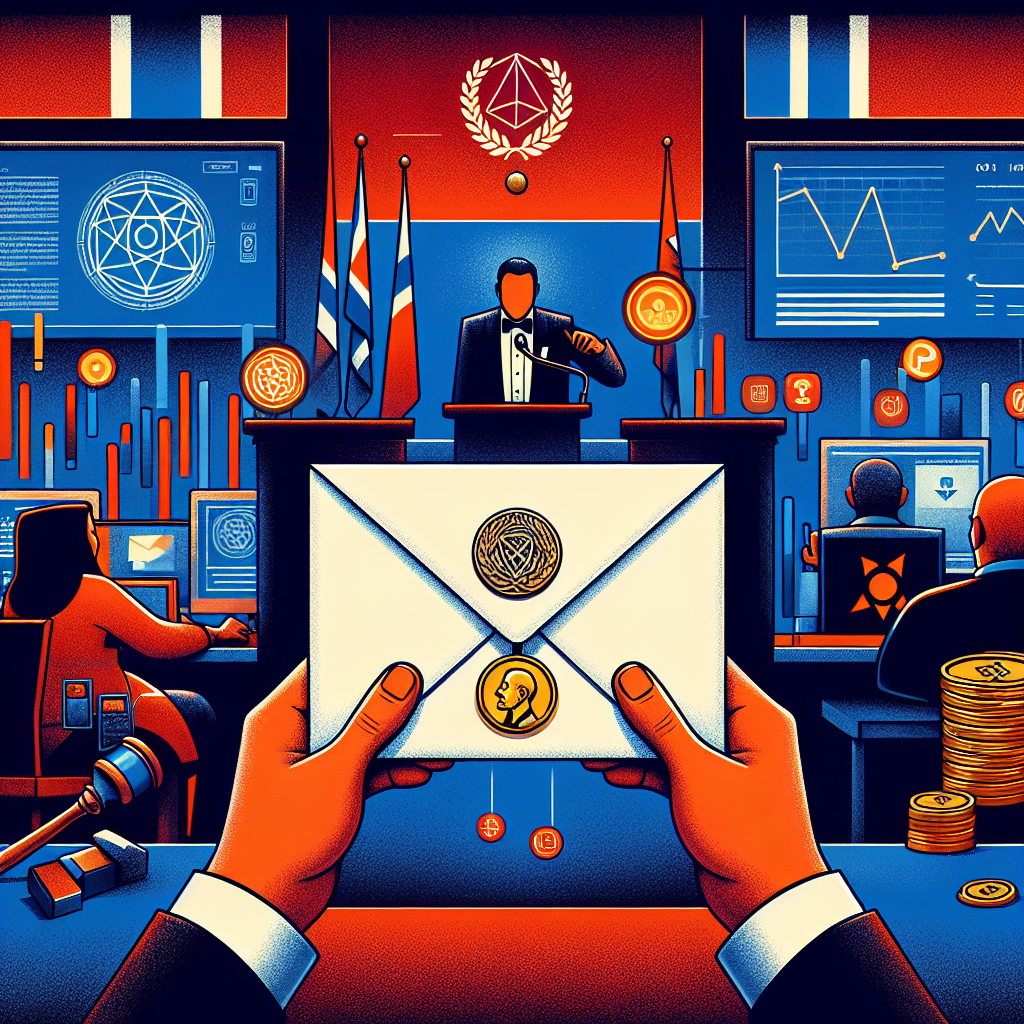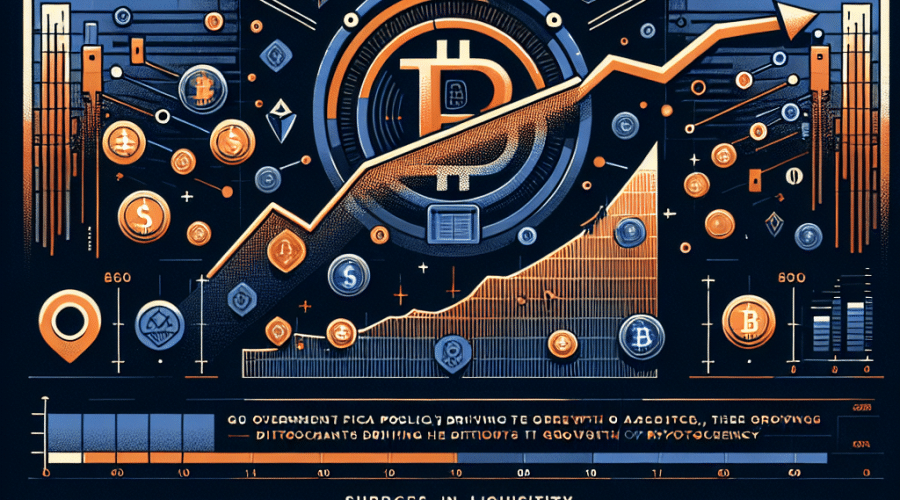Norwegian authorities have launched a sweeping investigation into a suspected leak of confidential information surrounding the 2025 Nobel Peace Prize. The probe comes after an unusual surge in online betting on the eventual winner, Maria Corina Machado, a prominent Venezuelan opposition leader, just hours ahead of the Nobel announcement. The incident has raised broad and complex questions about the security of one of the world’s most prestigious awards, insider trading in prediction markets, and the future of online betting oversight.
Surge in Bets Raises Red Flags
The controversy began in the early hours of Nobel Prize announcement day, when Polymarket, a blockchain-based prediction market, saw an unprecedented spike in wagers favoring Maria Corina Machado shortly after midnight Norwegian time. This sudden flow of bets was notable in both size and timing, focusing suspicion squarely on a potential breach of the Nobel Committee’s strict confidentiality protocols. The Nobel Peace Prize decisions are typically shrouded in secrecy until they are publicly revealed, making the accuracy and volume of these last-minute bets highly suspicious.
According to reports, an individual using the online alias “dirtycup” was responsible for a major portion of the wagers, placing approximately $70,000 on Machado to win. The timing and confidence of these bets resulted in a swift profit of around $30,000, while two other identified accounts made similarly aggressive trades, bringing the group’s collective profit to about $90,000. Online sleuths and Norwegian media have since spotlighted these transactions, fueling speculation about insider access to privileged information.
Inside the Nobel Committee’s Response
The Nobel Peace Prize, administered by the Norwegian Nobel Institute, has been a global symbol of integrity and confidentiality since its inception. The recent incident has shaken both the public’s trust and the Nobel community’s sense of security. Kristian Berg Harpviken, director of the Norwegian Nobel Institute, broke his silence to address the matter, acknowledging the gravity of the situation. He publicly stated, “It seems we have been prey to a criminal actor who wants to earn money on our information.”
While the Nobel Committee had finalized its decision on the prize winner earlier in the week, the spike in trading activity just before the official announcement suggests that the confidentiality of the selection process may have been compromised. Harpviken emphasized that the Institute treats the protection of its decision-making process as paramount and vowed a full internal review to determine whether confidential information was accessed or disclosed unlawfully.
The Mechanics of the Betting Scandal
At the heart of the investigation is Polymarket, a decentralized prediction platform that enables users to speculate on the outcomes of various global events—including award results, elections, and political developments—by trading “shares” in different outcomes. Because Polymarket’s trading is accessible, transparent, and recorded on the blockchain, abnormal activity can be quickly detected and scrutinized by outside observers.
Data analysis of Polymarket’s Nobel Peace Prize market showed that the large bets on Machado came very late in the betting cycle, at a time when most informed observers would have expected bets to be distributed among multiple candidates. This pattern was considered so unusual that it attracted attention from prediction market enthusiasts, who flagged it publicly before the prize’s official announcement.
Observers from the financial sector have noted that such market moves are characteristic of insider trading, where an individual or group acts on confidential, market-moving information before it becomes public. This kind of maneuvering is illegal in regulated financial markets, and questions are now being raised about whether similar laws should apply to decentralized betting and prediction platforms.
The Rise and Risk of Prediction Markets
Prediction markets like Polymarket have exploded in popularity over the past few years, fueled by the rise of blockchain technology, increased investor appetite for unconventional speculation, and a global fascination with “event trading.” These platforms offer users the ability to wager on everything from political races to climate outcomes, all while promising transparency and fairness through decentralized record-keeping.
However, the very features that make these platforms attractive—their speed, global accessibility, and relative anonymity—also create ripe conditions for manipulation if market-sensitive information starts to leak. In the case of the Nobel Peace Prize, the stakes extend beyond personal profit or loss: they threaten the reputation and perceived impartiality of the Nobel selection process itself. The incident also exposes the regulatory gray area in which prediction markets operate, especially as traditional oversight bodies struggle to keep up with rapid technological change.
Past Regulatory Scrutiny
This is not the first time prediction markets have come under official scrutiny. In 2022, Polymarket agreed to restrict access for users in the United States after the U.S. Commodity Futures Trading Commission (CFTC) determined that it was offering unregistered and unauthorized trading, a violation of U.S. derivatives regulations. The CFTC’s intervention highlighted how regulatory agencies are beginning to take prediction markets more seriously, particularly as their potential for abuse becomes clearer.
The ongoing investigation in Norway brings the regulatory debate back to the forefront, as authorities weigh possible criminal charges, both for unauthorized access to confidential Nobel Committee decisions and for misuse of material nonpublic information for private gain. Policymakers, legal experts, and industry participants are already calling for clearer guidelines around the operation, monitoring, and governance of prediction platforms, particularly when sensitive or consequential real-world events are at stake.
Implications for Nobel Prizes and Beyond
The Nobel Peace Prize scandal demonstrates the unique vulnerability of high-profile global awards in the era of digital speculation. While traditional financial and regulatory systems have developed tools to spot insider trading in stocks and commodities, decentralized prediction markets remain a technological and legal “wild west” where enforcement and oversight are far from settled.
If the leak is confirmed, it would represent not just a criminal act but a significant breach of trust for the Nobel Committee, whose credibility relies on its strict adherence to secrecy and process integrity. The episode raises urgent questions: Who may have had access to the Nobel Peace Prize winner information prior to the announcement? Was there a single “bad actor” or a more widespread information leak? Could similar vulnerabilities exist in other major international awards and recognition systems?
The Nobel Institute’s decision to conduct an internal review is seen as a first step towards restoring confidence. However, it may also trigger further changes in how the Nobel Committee—and similar institutions—handle sensitive information going forward. Increased digital security measures, tighter vetting of Committee staff and associates, and possibly even new prohibitions on certain types of betting activity may all be considered in the months ahead.
The Broader Impact on Online Betting and Financial Markets
The Nobel Peace Prize incident is quickly becoming a case study in the intersection of old institutions and new technology. As more of global culture—and its most cherished milestones—becomes the subject of blockchain-backed speculation, the expectation of information security must evolve in lockstep with technological advances. High-profile leaks can rapidly erode trust, not just in the entities directly affected, but also in the broader promise of transparent, fair, and accessible prediction markets.
The episode may influence regulators worldwide as they consider how to protect high-stakes decisions from similar market manipulation. Furthermore, the Polymarket case suggests that future betting on culturally significant events may face much tighter restrictions, automated surveillance, and even real-time intervention to prevent abuse. Ultimately, while technology continues to break down the barriers to participation and democratize speculation, it also exposes new risks that demand robust oversight, responsible platform management, and prudent user conduct.
Looking Ahead: Transparency, Oversight, and Accountability
As the Nobel leak investigation unfolds, the world will be watching closely to see how the Norwegian authorities, the Nobel Institute, and prediction market platforms respond. Conclusive answers and convictions may take time, but the pressure is now on both global institutions and the burgeoning world of digital gambling to demonstrate their commitment to transparency, oversight, and accountability.
For advocates of open markets and decentralized technologies, the incident is a reminder that integrity and fair play remain non-negotiable pillars in any system—digital or otherwise. And for the Nobel Committee, this breach will serve as a sobering call to shore up the confidentiality at the heart of one of the world’s most celebrated honors, ensuring that future winners are revealed to the world only when the moment is truly right.


















